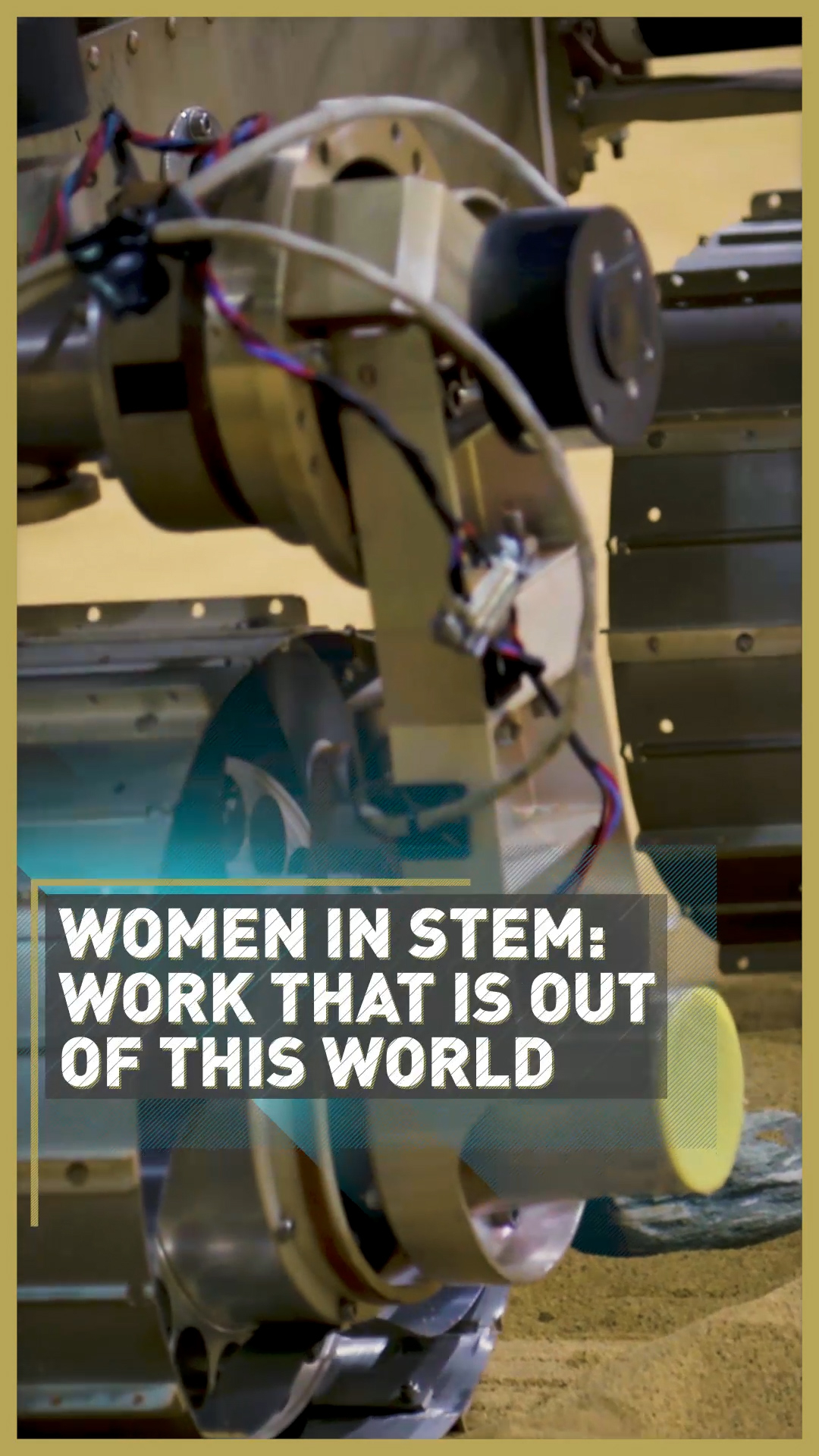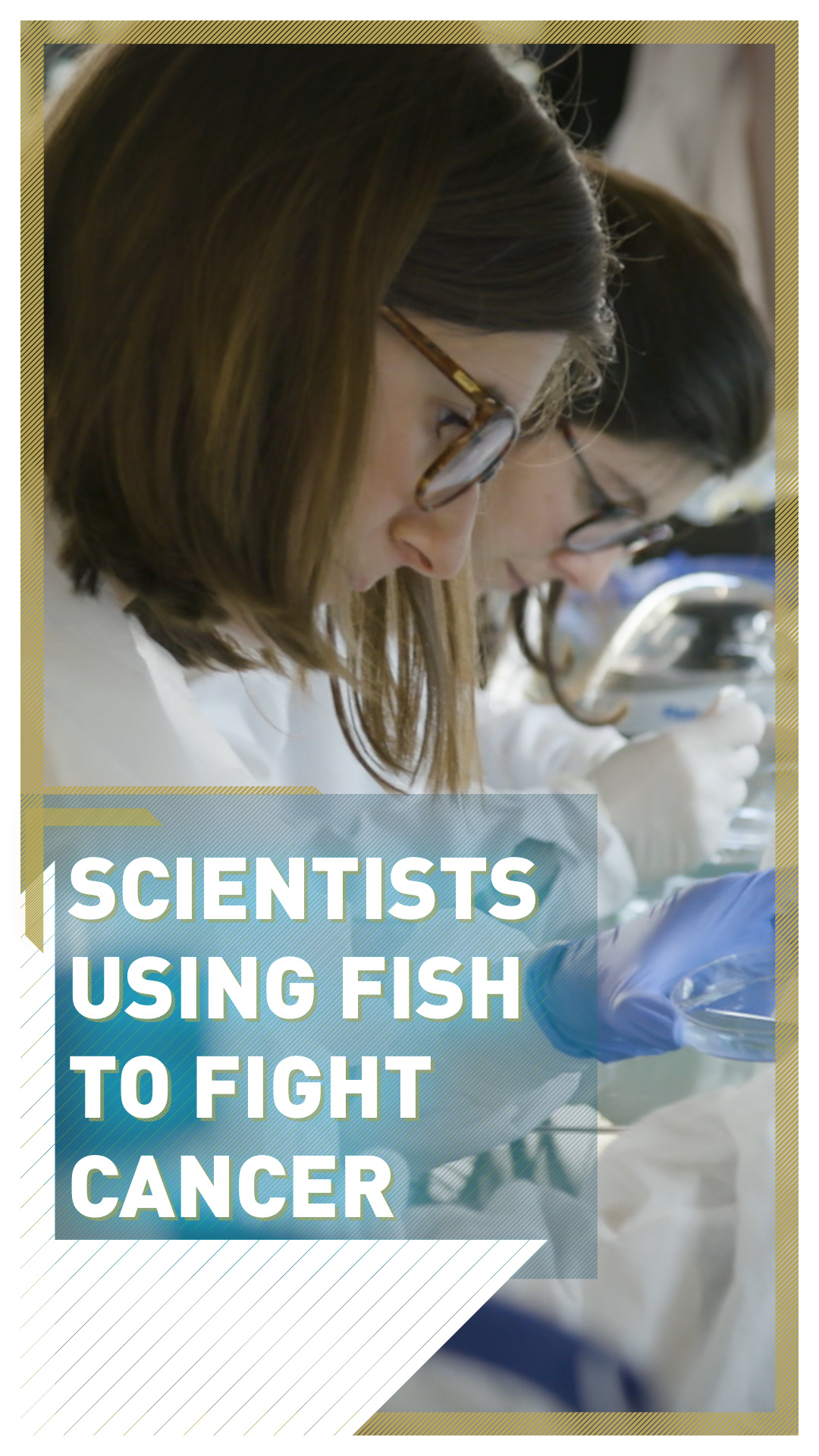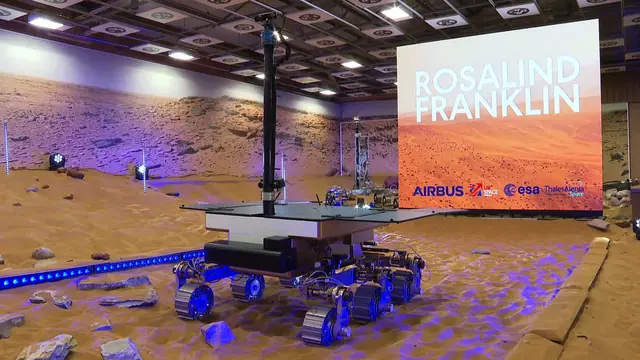02:12

Abbie Hutty: Spacecraft engineer
In a profession seen by many as male-dominated, design engineer Abbie Hutty is reaching for the sky.
Hutty explained the challenges for women entering the STEM (Science, Technology, Engineering and Mathematics) industry: "I think one of the challenges for women coming into STEM is just that you don't see that many people in engineering, in science, in your everyday life.
"Historically, textbooks in the media have portrayed scientists as these kind of crazy white-haired guys in lab coats. So it's hard to imagine being a person if you don't have that role model and you don't personally know someone already working in those fields."
As an engineer at Airbus Defence and Space in the UK, Hutty has spent the last eight years working on the Rosalind Franklin Rover, named after a British DNA pioneer and scheduled to land on Mars in 2021. As Hutty explains, the original Rosalind Franklin "helped to characterize life on earth, and we're sending our mission to go and look for life on another planet to find out what that's like - so hopefully she'll learn some lessons from her namesake."
Hutty is on her own mission to change the perception of engineering. "A lot of people still have the misconception that engineer is synonymous with mechanic and it's kind of a messy, grubby job - maybe underneath cars, that kind of thing, which can be particularly off-putting to girls.
"But actually design engineering, which is what I work in - I work in an office with computers and my colleagues wear nice dresses and suits to work every day. That's a very different professional experience, and the kind of lifestyle that maybe is more appealing to girls."
01:45

Rita Fior: Combating cancer
Rita Fior is a developmental biologist working in cancer research. Fior and her team take the patient's tumor cells and insert them into zebrafish; by testing different therapies on the zebrafish, they can help oncologists choose the best treatment for their patients.
It's a system that works: Fior reports an 81 percent success rate of matching results in colorectal cancer, and a 100 percent rate in breast cancer.
Fior says that the biggest challenge of being a female scientist is "to balance your family life with science," weighing up the "need to be so focused on intense work" with the desire to "switch off" for personal time.
While she acknowledges that "the difference in gender can affect your progression," she notes that "things are changing and getting much better."
Source(s): AFP
 简体中文
简体中文










